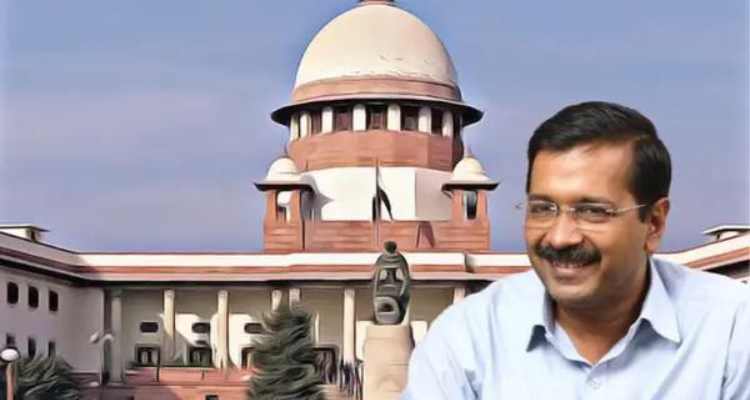
On Monday, the Supreme Court dismissed a petition requesting the removal of Aam Aadmi Party (AAP) leader Arvind Kejriwal from his position as the Chief Minister of Delhi. The petition was prompted by Kejriwal’s arrest by the Enforcement Directorate (ED) in connection with a money laundering case linked to the Delhi excise policy.
Justices Sanjiv Khanna and Dipankar Datta stated that such matters fall within the jurisdiction of the Lieutenant Governor of Delhi, emphasizing that the Court cannot intervene. The Bench remarked that they cannot delve into these matters. If the LG deems it necessary, he can take action. There is no legal entitlement. It’s a matter of propriety.
The Delhi High Court recently rejected a petition requesting directives for the removal of Arvind Kejriwal from his position as Chief Minister (CM) of Delhi following his arrest by the ED. The High Court remarked that the petitioner was trying to embroil the Court in political matters and announced a penalty of ₹50,000. Consequently, an appeal was filed before the Supreme Court.
Currently, Kejriwal is out on interim bail, granted by the Supreme Court. However, he is barred from performing his duties as Chief Minister, including signing official documents or using the Chief Minister’s office.
The petition presented before the High Court argued that despite his incapacity, Kejriwal persisted in holding the position of Chief Minister of Delhi. This situation not only posed numerous constitutional challenges but also infringed upon the right to life guaranteed to the people of Delhi.
Previously, on March 28, the High Court dismissed a comparable public interest litigation (PIL) submitted by Surjit Singh Yadav. Subsequently, on April 4, the Court declined to entertain another similar PIL filed by Vishnu Gupta, the president of Hindu Sena.
The Court asserted that whether Kejriwal chooses to remain as the CM is his personal decision.
Read More: Supreme Court, Delhi High Court, States High Court, Other Courts, International




